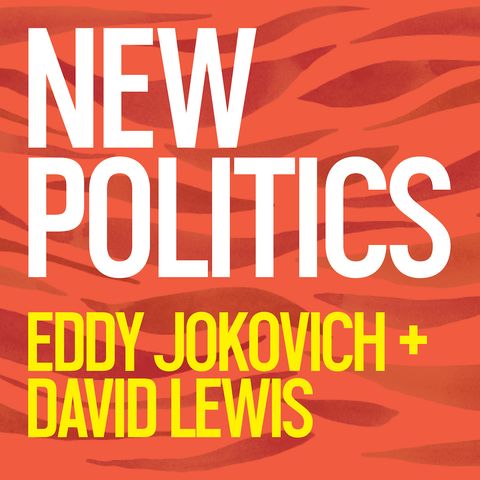Goodbye McGowan, the PwC scandal, and the conservative attacks on the Voice to Parliament

Download and listen anywhere
Download your favorite episodes and enjoy them, wherever you are! Sign up or log in now to access offline listening.
Goodbye McGowan, the PwC scandal, and the conservative attacks on the Voice to Parliament
This is an automatically generated transcript. Please note that complete accuracy is not guaranteed.
Description
In this episode, we discuss the recent resignation of Mark McGowan as Premier of Western Australia; examine the controversy surrounding PwC’s leak of secret information from the Australian Taxation Office;...
show moreMark McGowan, has stepped down as the Premier of Western Australia after six years in office. Citing exhaustion and a lack of energy to effectively continue in his role, McGowan concluded his resignation speech, marking the end of an influential and highly successful career.
The a prominent consulting firm PwC – one of the ‘Big Four’ – has faced intense scrutiny for leaking confidential information from the Australian Taxation Office to its international clients, revealing plans by the Australian Government regarding multinational corporations tax and corporate law changes. There are suggestions that the released information represents just the tip of the iceberg, with other consulting firms likely to be implicated. This situation raises significant concerns about government outsourcing, particularly given the staggering $21 billion spent on consultants and outsourcing in the final year of the previous Coalition government. This figure is equivalent to 54,000 full-time staff or 37 per cent of the entire federal government public service. While the current Labor government aims to reduce this spending, the existence of ongoing contracts and the need for specific expertise pose challenges in immediate reduction.
Prime Minister Anthony Albanese has been actively promoting the Voice to Parliament: during his speech in Adelaide, he emphasised the potential of the Voice the Parliament as a moment of national idealism, and an opportunity to surpass the achievements of the 1967 referendum. However, there is a major difference between the 1967 referendum and the Voice to Parliament. The Liberal Party’s nature has evolved from a liberal stance in the 1960s to a more reactionary conservative party today and mobilising fear, loathing, and hatred is easier now than in the past, and it was always inevitable that the federal Liberal Party was not going to support the Voice to Parliament – they declared their support for the “no” campaign, even before the legislation reached Parliament.
The Liberal Party misrepresents information, spreads lies, and continuously demands more details: they accuse Anthony Albanese of being secretive about the Voice to Parliament, attempting to cultivate a racist vote across Australia. These bad faith actors show no intention of supporting positive change for Indigenous Australia, despite having had nine years to address the very issues they complain about.
While some have criticised Albanese for lacking courage and being slow in implementing reforms, these criticisms should not apply to the Voice to Parliament. It aligns precisely with the demands of Indigenous people. Indigenous issues do not garner significant electoral support in Australian politics, and the Labor government will possibly lose votes on the Voice to Parliament. But, it’s the right thing to do. Despite this, it just highlights the difficulty of convincing the rest of Australia to support initiatives that positively affect Indigenous people amidst conservative antagonism. #auspol #VoiceToParliament
Information
| Author | New Politics Australia |
| Organization | New Politics Australia |
| Website | - |
| Tags |
Copyright 2024 - Spreaker Inc. an iHeartMedia Company

Comments